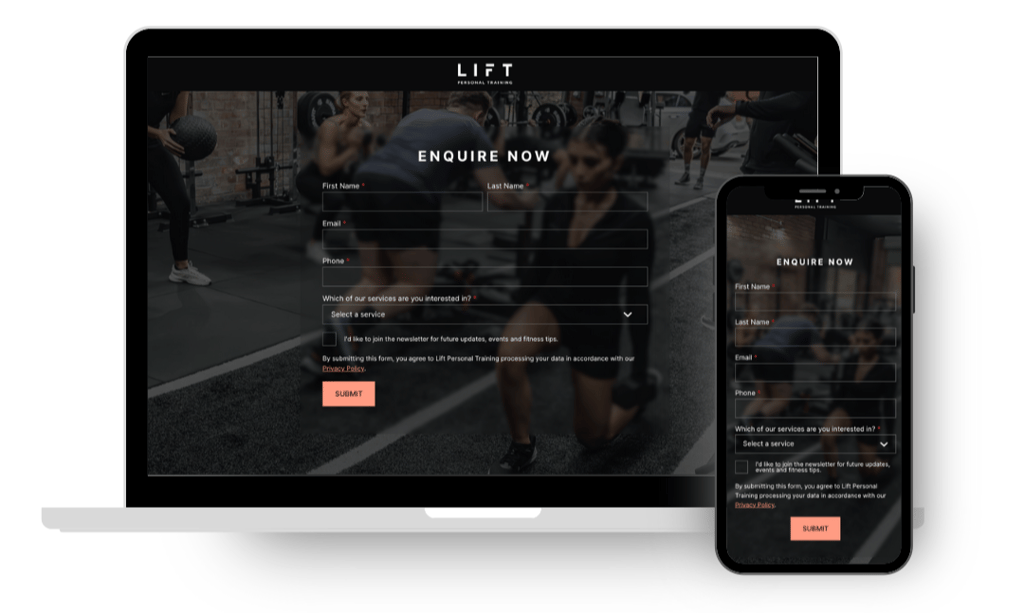Everyone knows that the majority of internet traffic now coming from mobile devices, but it’s still common to come across websites that don’t work on mobile or the design completely breaks.
This costs you sales and reputation, and it can be avoided with proper planning, development and testing for mobile users.
Putting mobile first in your website development project means that anyone visiting can enjoy a smooth and frustration-free experience, no matter what device they’re using.
The Shift to Mobile Browsing
Statistics show that around 60-70% of global web traffic comes from mobile devices. Think about it: people are constantly on the go, checking their phones during commutes, in queues, or while watching TV. It’s no wonder that smartphones have become the primary way to browse the web. Especially with a younger demographic that has grown up with handheld devices like phones and tablets, versus a PC.
Ignoring this trend means risking a large chunk of your potential audience. When your site isn’t easy to navigate on a phone, visitors are likely to leave and never come back.
What Makes a Website Mobile-Friendly?
When you hear “mobile-friendly,” you might think of smaller screens and touch navigation. But there’s more to it than that. For your site to be truly mobile-friendly, several factors need to come together seamlessly for a smooth user experience that’s more likely to increase conversions.
Responsive Design That Works Across All Devices
The very first principle is prioritising responsive design. Responsive design means that your website looks good on any device, whether it’s a phone, tablet, or desktop computer. It means your layout automatically adjusts to fit the screen size, and elements like text, buttons, and images resize accordingly. This isn’t just about shrinking things down to fit—it’s about rearranging content in a way that makes sense for the device being used.
For example, a three-column layout that works well on a desktop might need to switch to a single-column view on a phone. Without responsive design, mobile users can end up with pages that are difficult to read or navigate, leading to frustration and a quick exit.
Creating a Mobile-Friendly User Journey
The way people interact with websites on mobile is different from how they do on desktops. When someone is browsing on their phone, they’re often looking for quick information or a specific task—such as finding contact details, checking prices, or making a booking. That means your website needs to offer a streamlined experience, with easy-to-find navigation, simple forms, and a clear call to action.
If they have to hunt around for the information, they’re likely to give up and look elsewhere. Make things as straightforward as possible by having concise menus, placing important content at the top of the page, and making buttons big enough to tap easily.
Text and Images That Fit Mobile Screens
A mobile-friendly website ensures that text is readable without having to zoom in, and images don’t stretch beyond the screen’s edges. If users have to pinch and scroll just to read a paragraph, they’re likely to leave. Your content should be well-organised, with short paragraphs and headings that break up the text. When using images, they need to scale properly to avoid being cut off or becoming pixelated.
For example, large hero images might look stunning on a desktop but can disrupt the flow of a mobile site if not adjusted. By using flexible images and media, you can make sure they display correctly on smaller screens, offering a more professional and polished appearance.
Fast Loading Times on Mobile Connections
Speed is critical for mobile users. If your website takes more than a few seconds to load, visitors are likely to abandon it. This is especially true on mobile networks, which may not always be as fast as Wi-Fi. To ensure a speedy experience, optimise images, avoid heavy scripts, and consider using a content delivery network (CDN) to speed up content delivery.
Slow loading times don’t just annoy users—they can also affect your search engine rankings. Google uses page speed as a ranking factor, and slower sites don’t do as well in mobile search results. If you’re aiming to rank for specific keywords making sure your site loads quickly on mobile could give you a competitive edge.

Let’s think about how this could work in the real world. Imagine you’re a restaurant owner in Preston with a website that isn’t mobile-friendly. When someone searches for your business on their phone, they encounter a site with tiny text, oversized images, and menus that don’t fit the screen. Frustrated, they might look elsewhere for dinner plans.
On the other hand, if your site is built with mobile users in mind, they’ll find a menu that’s easy to read, quick access to contact details, and a simple way to book a table. This positive experience increases the chances of them choosing your restaurant over the competition.
Why Prioritising Mobile Helps Your Business
Optimising your website for mobile users doesn’t just mean pleasing Google or ticking boxes on a checklist. It’s about offering a great experience that meets the expectations of today’s users. People have little patience for sites that don’t work well on mobile, having a site that’s built for mobile first can set you apart from competitors who haven’t adapted.
When your site is mobile-friendly, it tells potential customers that you’re a professional, up-to-date business that cares about their customers’ experience. Whether you’re looking to attract more local clients or reach a wider audience, prioritising mobile optimisation is a smart move that can directly impact your bottom line.
The shift to mobile-first design isn’t just a trend—it’s a reality that’s here to stay. If you want your business to succeed online, catering to mobile users should be your priority. A mobile-friendly site ensures that you can meet users’ needs, reduce barriers to conversion, and improve your chances of ranking for key search terms.
Don’t let an outdated website hold you back; make mobile users your priority and watch your online presence grow. If you’d like a free audit of your website or to talk about how your website can be improved, speak to us today.
Thu, 24 October 2024

